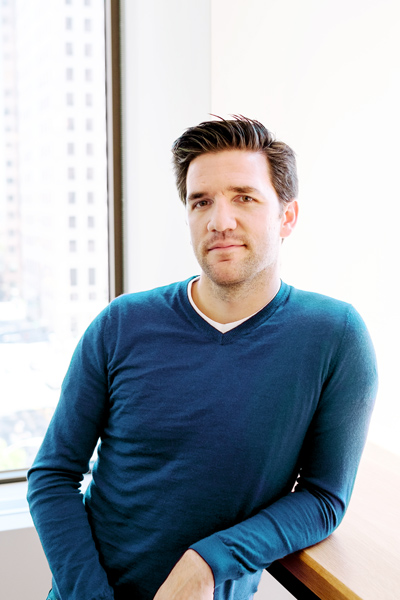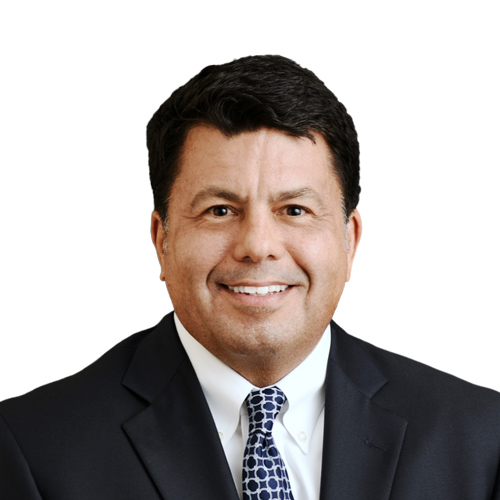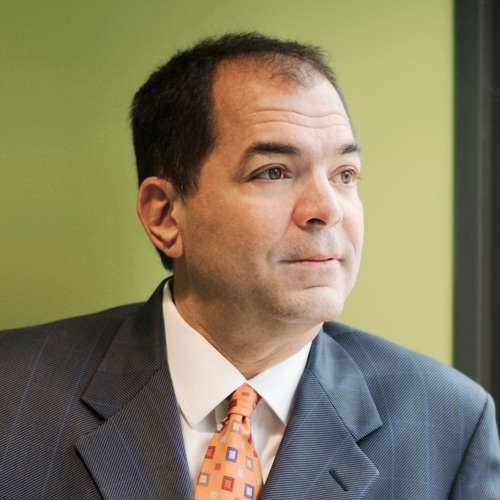
Say you’ve got a great idea for a tech business. You’ve located a need that hasn’t been filled and you think you know how to fill it, but you have to seize the moment before someone else figures out the same thing. That’s probably happening every hour on the hour in idea-rich, venture-capital-rich Silicon Valley, but it’s also happening in Spain and Latin America. That’s where strategist Juanjo Feijoo, formerly vice president of operations and marketing at booming online-shopping company Instacart, steps in.
Feijoo has spent his entire career working in tech. He’s held positions within operations for major players like Intel and Google, and he is currently senior director of product, marketing, and business operations for Creative Cloud at Adobe. Early on, he became riveted by the idea of bringing everything he had learned from those jobs to fledgling startups and watching them thrive.
“It started because it was fun,” he says. “I found it fascinating to have an opportunity to work with companies that were in such an exciting time of their development. It was a great way to get to know people and understand the different businesses and their challenges. Once I started, it became clear that there was a massive opportunity to help these founders. There is so much raw talent going into the startup ecosystem, and there are so many founders that find themselves in ecosystems that aren’t developed enough.”
Case in point is Latin America and Spain, where startups are negotiating a very different ecosystem. Market size is much smaller, with even the biggest Latin American country only one-third the size of the United States, and with one-fourth of the gross domestic product (GDP). But Feijoo says that these countries also have a lot of advantages.
There are 390 million Spanish speakers in the world, which means there are 390 million customers that a startup in Latin America or Spain can target. Government funding is more available than it is stateside, and intellectual labor is also cheaper: companies can hire five engineers there for what one costs in the United States. Lots of young people are out of work, which makes for a larger employment pool. Feijoo says all those factors create an environment that is very conducive to entrepreneurship, but that he still sees a lot of hesitation. Because, up to now, there has only been a trickle of successful startups out of the region, a big part of what he does is get founders to see these opportunities and move boldly into the market.
Just like in Silicon Valley, these nascent businesses need a lot of cash to get on their feet. Feijoo says that it’s available, but that there is hesitation on that end that has to be overcome.
“There are investors with large fortunes, who traditionally may invest in industry or real estate, that are hungry to diversify but don’t necessary know how to, or price a lot of risk in their analyses of these startups,” he says. “This creates a pretty unique environment where you have ample seed capital to get started and investors looking for big-ticket investments, but a very large gap in the bridge in between. That makes it very challenging for an entrepreneur to scale a business. As soon as they raise a round, they have to start planning the next, which means they have a hard time focusing on the business.”
Born in Argentina, raised in Spain, and educated in the United Kingdom, it didn’t take long for Feijoo to start an impressive career. After working for Intel and holding several positions at Google’s HQ in Ireland, Feijoo arrived in San Francisco in 2012 to join the Google Wallet division, where his core focus as strategist was the launch and expansion of live support to help evolve the brand. He says that being in Silicon Valley and observing what was happening there was immediately eye-opening. He began to think about how he could help founders in Spanish-speaking countries find the same success he was seeing there.
“There is so much raw talent going into the startup ecosystem, and there are so many founders that find themselves in ecosystems that aren’t developed enough.”
—Juanjo Feijoo
“Fairly quickly after arriving in Silicon Valley, the differences were startling,” he says. “The speed of execution, the openness to risk, and the way businesses are set up and scaled was unlike anything I’d seen before. I began receiving emails from entrepreneurs abroad that were coming here to try and bridge the divide by themselves. As I talked to others who lived here with similar backgrounds, they all had the same stories—so we started talking about how to better formalize a process for this. We could help a lot more companies, and do it a lot more effectively, if they all came into a single place, and we could match experts in specific fields or industries with companies. That’s how Gate 93 was formed.”
Gate 93 Ventures is an investment fund dedicated to helping startups in Latin America and Spain. The investors are not just deep-pocketed; they are chosen for their keen interest in growing startups. The fund focuses on helping these businesses get to scale and prepare for ever-larger financing rounds. Once a company is in Gate 93, they are matched up with a project team that acts as a consultant. They work with the founder to understand their particular challenges and focus on those. If it makes sense to raise a round of funding from the United States, they guide them through that process, as well.
Feijoo has been working with startups for a long time now, and he says he hasn’t really considered leaving the venture that gives him so much satisfaction. “Advising a startup takes a lot of hours,” he says. “But there’s something very fulfilling about helping new companies in Spain and Latin American reach true, global scale.”

